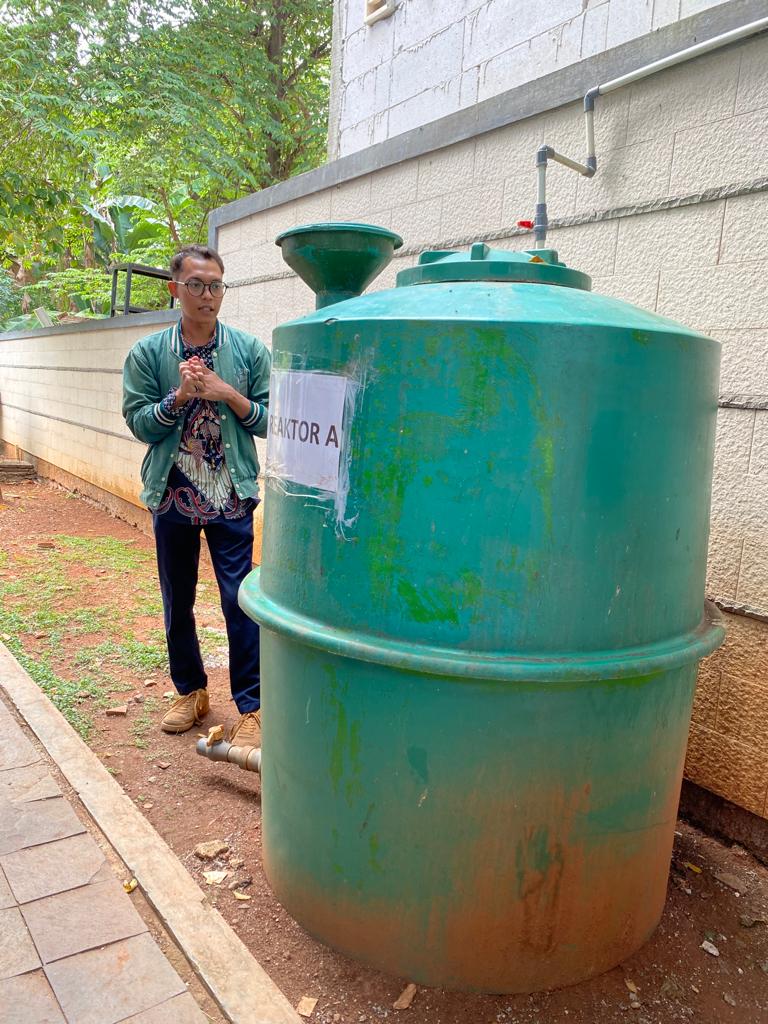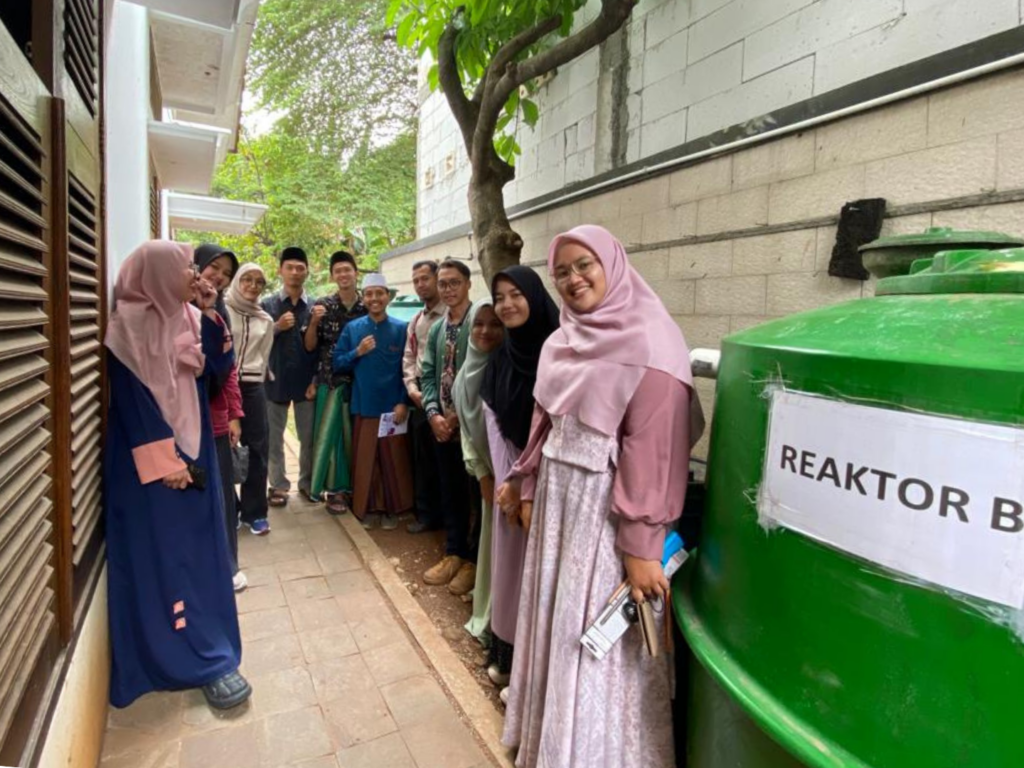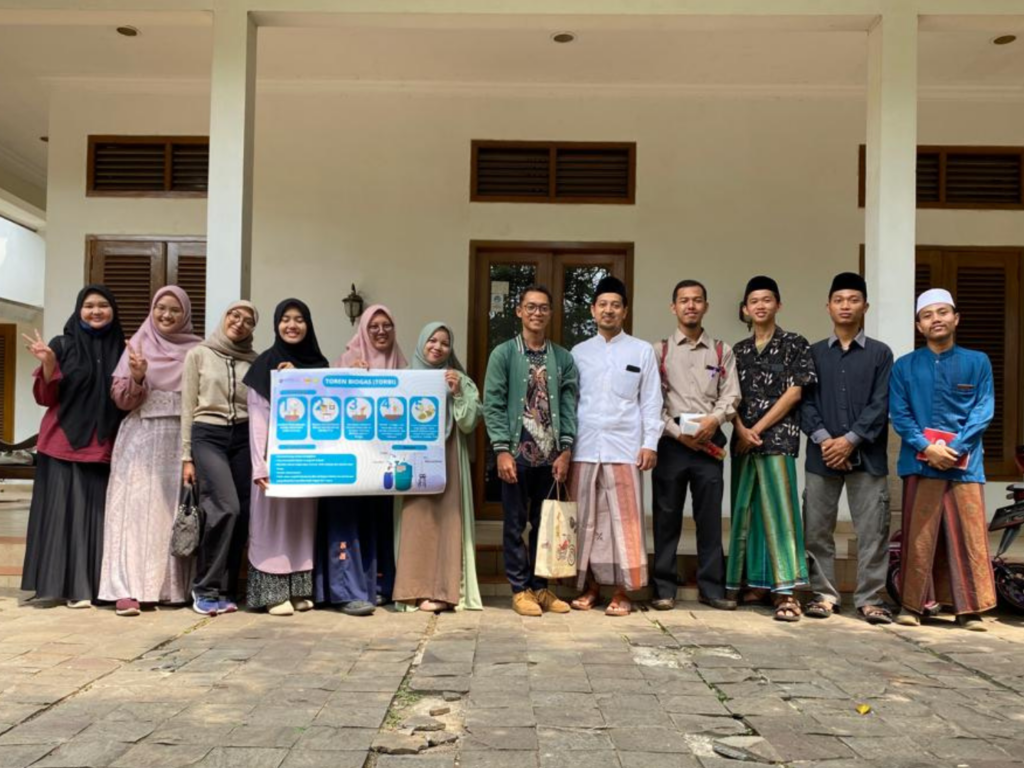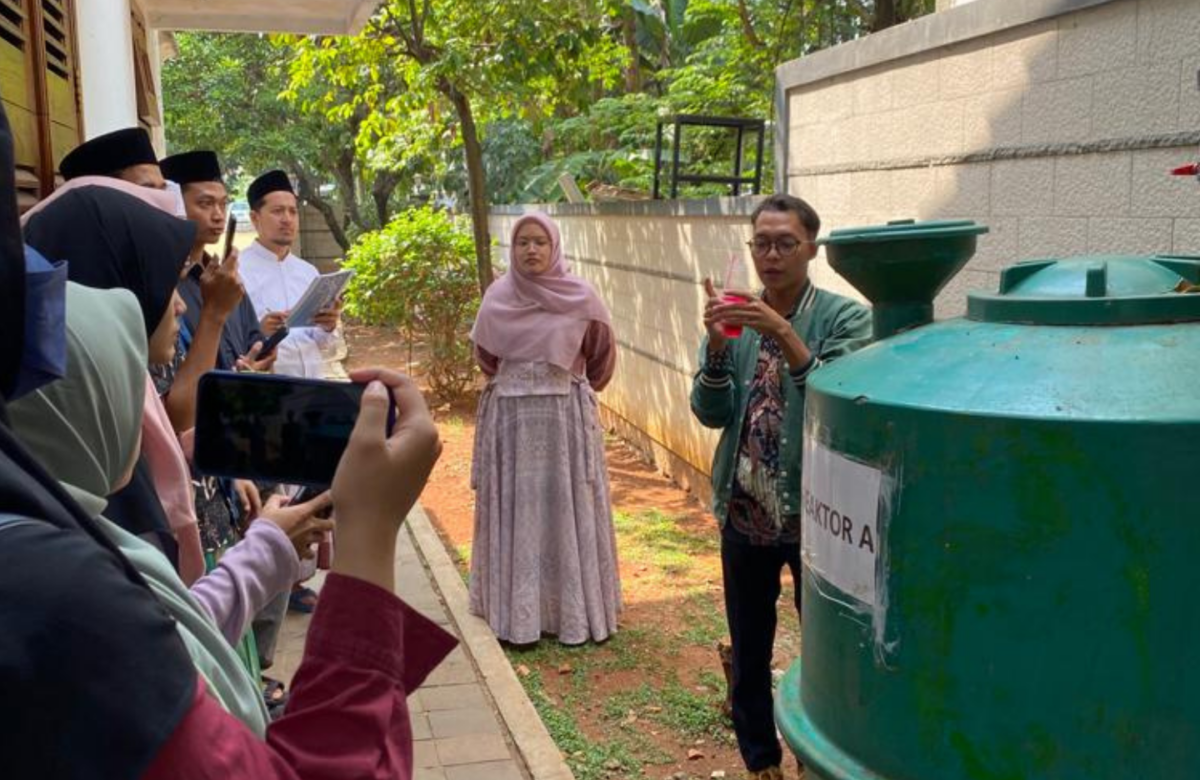Implementation of Anaerobic Digestion on Organic Waste at Al-Hikam Islamic Boarding School
In the effort to reduce the amount of waste ending in landfills, Pusat Studi Teknik Lingkungan (PSTL) or center for environmental engineering studies of the University of Indonesia has developed a technology for processing organic waste on a household scale. One result of this research is the conversion of organic waste into biogas using a Toren Biogas reactor, or TORBIm which has been implementated at the Al-Hikam Islamic Boarding School in Depok City.
A Brief Overview of TORBI
Toren Biogas (TORBI) is a reactor designed to break down organic matter with the help of anaerobic microorganisms, producing biogas rich in methane and probiotic sludge (rich in microorganisms). The TORBI reactor is designed to be easily implemented, using containers made of LLDPE or variations of polymer-based plastic, which allows for adaptation to different shapes and locations. The decomposition of organic material can also be accelerated using a starter, such as cow manure. These are the advantages of TORBI which allows large-scale implementation.
The biogas produced by the TORBI reactor can serve as a renewable energy source. Although it has not yet been implemented on a large scale in Indonesia, biogas can be used on a smaller scale, such as in households. Calculations show that the system can produce 805 ± 219 liters of biogas per day, which is sufficient for cooking for more than 30 minutes.

Implementing TORBI the Islamic Boarding School
TORBI has been implemented in various households across Java Island. According to Ismaniari’s research in 2020, installations have been carried out in Banten, Karawang, and Bandung. CEST has the opportunity to collaborate with Al-Hikam Islamic Boarding School in Depok City to implement TORBI at this location.

The anaerobic digestion technology at Al-Hikam Islamic Boarding School in Depok City has undergone seeding, acclimatization, and operational phases lasting approximately 3 months. During this period, the substrate (organic material) used consists of 7.6 kg/day of organic waste sourced from the Al-Hikam kitchen, local warteg (eateries), and nasi uduk stalls in the surrounding area. The collected substrate is mixed, chopped, and separated from certain hard, lignin-rich substrates or inorganic materials to prevent obstruction of the waste decomposition process.
Throughout the acclimatization and operational phases, TORBI undergoes biochemical processes including hydrolysis, followed by acidogenesis, acetogenesis, and methanogenesis. This process produces acidic compounds that serve as food for methanogenic bacteria, which then produce biogas with a methane content of 59%.
Through efforts in education and the transfer of anaerobic digestion technology, Al-Hikam Islamic Boarding School in Depok City is now working towards operating TORBI independently. The TORBI operation takes place every Monday, Wednesday, and Friday, carried out by the students of Al-Hikam. Female students are responsible for collecting the waste, while male students handle the feeding process.
Changing perspectives on waste and biogas
The implementation of TORBI is being carried out for the first time at an Islamic boarding school due to lack of interests to donate anaerobic digestion technology for use at this scale. This collaboration serves as an educational platform for the students and has a positive impact on the surrounding community regarding our approach to the waste produced.
It is hoped that the implementation of anaerobic digestion technology at Al-Hikam Islamic Boarding School in Depok City will serve as a model for other boarding schools, encouraging them to adopt similar efforts in organic waste management.
“Islamic boarding schools have a significant influence on the direction of human development.” — Muhammad Yusron Shidqi, Head of Pondok Pesantren Mahasiswa al-Hikam, Depok, West Java.


